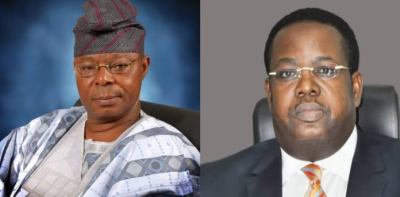At the recently concluded 2025 Commonwealth Law Conference held in Malta, legal luminaries and policymakers from across the globe converged to deliberate on pressing legal issues shaping the modern Commonwealth.
Among the distinguished speakers was Mrs. Oyinkansola Badejo-Okusanya, FCIArb, a highly respected Nigerian legal practitioner, arbitrator, and thought leader in dispute resolution. She served as a panelist at a high-profile session themed: “Promoting Legitimacy and Robustness in a Globalized Arbitration World.”
Mrs. Oyinkansola Badejo-Okusanya is a renowned Nigerian lawyer, Fellow of the Chartered Institute of Arbitrators (UK), and Partner at one of Nigeria’s forward-looking law firms.
A fierce advocate for arbitration and institutional reform, she is widely recognized for her contributions to alternative dispute resolution (ADR) and legal education in Nigeria and beyond. Over the years, she has served on panels and committees that influence ADR policies, and she has mentored dozens of young practitioners into arbitration practice.

Nigeria’s Evolution in Arbitration: A Progressive Narrative
In her presentation, Mrs. Badejo-Okusanya took the audience through Nigeria’s transformational journey toward becoming a truly arbitration-friendly jurisdiction. She anchored her discourse on the enactment of the Arbitration and Mediation Act, 2023, a groundbreaking legislation that repealed the over three-decade-old Arbitration and Conciliation Act, 1988 Cap A18, LFN 2004.
According to her, the new Act is not just a statutory update—it is a foundational reset that aligns Nigeria’s arbitration framework with global best practices. “Nigeria’s new arbitration law is a powerful symbol of progress, signaling a shift from outdated provisions to a regime that embraces efficiency, party autonomy, and enforceability,” she noted.
Key Innovations in the Arbitration and Mediation Act, 2023
Mrs. Badejo-Okusanya highlighted several hallmark provisions in the 2023 Act that have radically improved the country’s arbitration posture. Among them are:

- Introduction of Emergency Arbitrator: A pivotal development that allows parties to seek urgent relief through emergency arbitrators, even before the formal constitution of an arbitral tribunal. This aligns Nigeria with jurisdictions like Singapore, the UK, and Hong Kong.
- Expanded Interim Measures: The Act now empowers arbitral tribunals to grant interim measures of protection with broader scope and enforceability, enhancing procedural robustness and party security.
- Harmonization with the UNCITRAL Model Law: The Act adopts modern arbitration principles in line with the UNCITRAL Model Law (as amended in 2006), ensuring predictability and international compatibility.
- Introduction of S. 55(2) which takes away the power of the courts to review final awards on the merit (the so-called error of law on the face of the award), thereby firmly establishing Nigeria as an arbitration-friendly jurisdiction.
- Statutory Backing for Mediation: Beyond arbitration, the Act provides comprehensive frameworks for mediation, including enforceable mediated settlement agreements—a step that reinforces ADR’s role in commercial justice.
A Historical Perspective
Mrs. Badejo-Okusanya traced Nigeria’s arbitration trajectory back to the Arbitration Ordinance of 1914, modelled after the English Arbitration Act of 1889.
She emphasized how successive reforms have led to the current legal landscape, culminating in the 2023 Act. “For over a century, arbitration in Nigeria remained tethered to colonial-era templates. Today, we are finally charting a path that is grounded in local context, yet global in outlook,” she remarked.
Global Recognition and Reception
Her incisive commentary received commendations from fellow panelists and attendees from various Commonwealth jurisdictions, including judges, corporate counsel, and institutional heads. Many praised Nigeria’s proactive stance in overhauling its alternative dispute resolution framework and called for similar reforms in other jurisdictions.
Mrs. Badejo-Okusanya’s presentation not only showcased Nigeria’s legislative strides, but also affirmed the country’s commitment to fostering a trustworthy, efficient, and investor-friendly arbitration environment—a move that is likely to boost foreign direct investment and reinforce confidence in Nigeria’s legal system.
Conclusion
By spotlighting the Arbitration and Mediation Act, 2023, and contextualizing its long-term impact, Mrs. Oyinkansola Badejo-Okusanya demonstrated Nigeria’s readiness to be a leader in arbitration reform on the African continent.
Her contribution to the Commonwealth Law Conference underlines her continued advocacy for legal systems that promote access to justice, fairness, and global integration.
Nigeria’s story, as she presented it, is one of legal courage, reform, and determination—and with leaders like her at the forefront, the future of arbitration in the country appears both promising and progressive.
PHOTOS:


READ MORE:
Oyinkansola Badejo-Okusanya FCIArb Participates in 24th Commonwealth Law Conference in Malta









